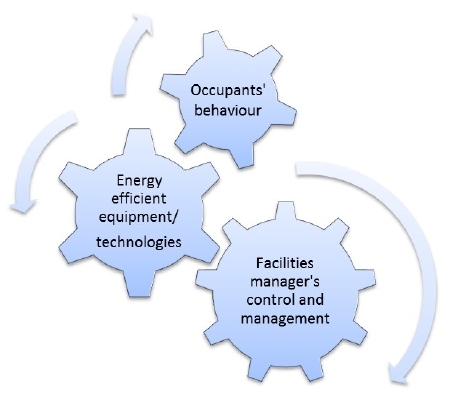15 simple carbon-reducing tips

Following the release of the Synthesis report by the UN’s Intergovernmental Panel on Climate Change (IPCC), highlighting the need to reduce carbon usage, Ian Orme of BSRIA provides some useful tips on how to help reduce carbon - and energy use - within your organisation.
Non-domestic buildings in the UK are responsible for about a fifth of the country’s total carbon emissions. As the majority of existing buildings will still be in use by 2050, improving energy performance of existing buildings is important to help the country to meet their emission reduction targets.
Energy can be saved by better control and management of the systems with large energy consumption associated with them to eliminate the waste. In non-domestic buildings, the installed heating, ventilation and cooling system (HVAC) is normally the highest energy consumer, with lighting the second biggest load and a major source of internal heat. Small power loads are not only a considerable energy consumer but also contribute significantly to internal heat gains.
To enhance energy performance of buildings in operation, operators and occupants have vital roles to play. Below is a list of simple low/no-cost energy-efficiency measures that operators can implement in their buildings. Some of these measures require occupants’ co-operation and can even lead to desired behaviour change.
1. Conducting regular energy audits to determine where and how energy is used in the building.
2. Measuring HVAC weather-dependent energy consumption, using degree days, regularly (e.g. quarterly) to ensure the system is correctly adjusted based on the outdoor temperature.
3. Increasing operating efficiency of chillers, boilers and cooling equipment via proactive service and planned maintenance.
4. Calibrating thermostats and sensors and increase the operating set-points to allow a larger temperature difference that reflects the outside conditions (e.g. raising the set-point in the summer to 24°C and reducing it in the winter to 1°C).
5. Reminding occupants, via emails, posters etc., to dress appropriately to the time of year.
6. Modifying controls to prevent heating and cooling systems operating simultaneously.
7. Implementing setback plans to reduce or eliminate HVAC use during unoccupied hours.

8. Ensure radiators (if any) are working to their full capacity (e.g. no blockages internally or externally) so that portable heaters can be removed.
9. Ensuring that heating/cooling doesn’t escape the building via windows left open, and checking for draughts through leaky windows and doors.
10. Using energy efficient lamps [e.g. T8 ,compact fluorescents (CFLs) or LEDs] that not only can help cut lighting operational costs but also enhance lighting quality.
11. Ensuring the workstation allocation is aligned with the artificial lighting requirements of the work to remove the need for extra task lamps.
12. Improve lighting control by labelling manual light switches (if any) to remind and encourage occupants to turn lights off when they are not in use, installing occupancy sensors especially in rooms that are frequently unoccupied, check that daylight sensors (if any) are working correctly , remind occupants to adjust the window blinds (if any), when there is no glare issue to make the most of daylight and also by checking the default time delay for the lights with PIRs sensors (if any) to ensure it is not too long for different areas.
13. Measure light levels in different zones regularly (e.g. every month) to ensure lighting levels are not excessive — increasing power demand.
14. Use energy-efficient (Energy Star® rated) equipment throughout the building.
15. Raise occupants’ energy awareness and encourage/remind them to switch off their appliances when they are not in use.
Ian Orme is Team Leader with the Sustainable Construction Group at BSRIA.







